Observational skills Science Worksheets for Ages 4-8
14 filtered results
-
From - To
Unlock the wonders of science with our "Observational Skills Science Worksheets" designed for children ages 4-8! These engaging worksheets stimulate young minds by encouraging critical thinking and keen observation of the world around them. Through hands-on activities and colorful illustrations, children will explore nature, identify patterns, and develop their sensory skills. Perfect for home or classroom use, these worksheets support early STEM education, fostering curiosity and a love for discovery. Enhance your child's learning experience with fun exercises that enhance their observational skills and promote scientific thinking! Visit us today to access a wealth of resources tailored to young explorers.
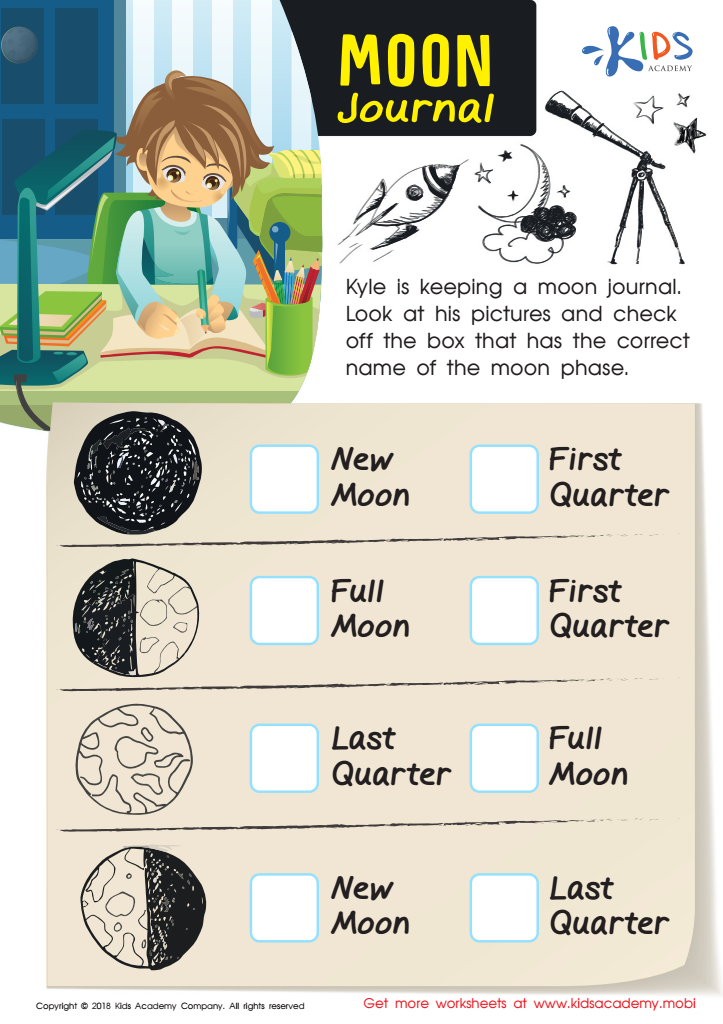

Moon Journal Worksheet
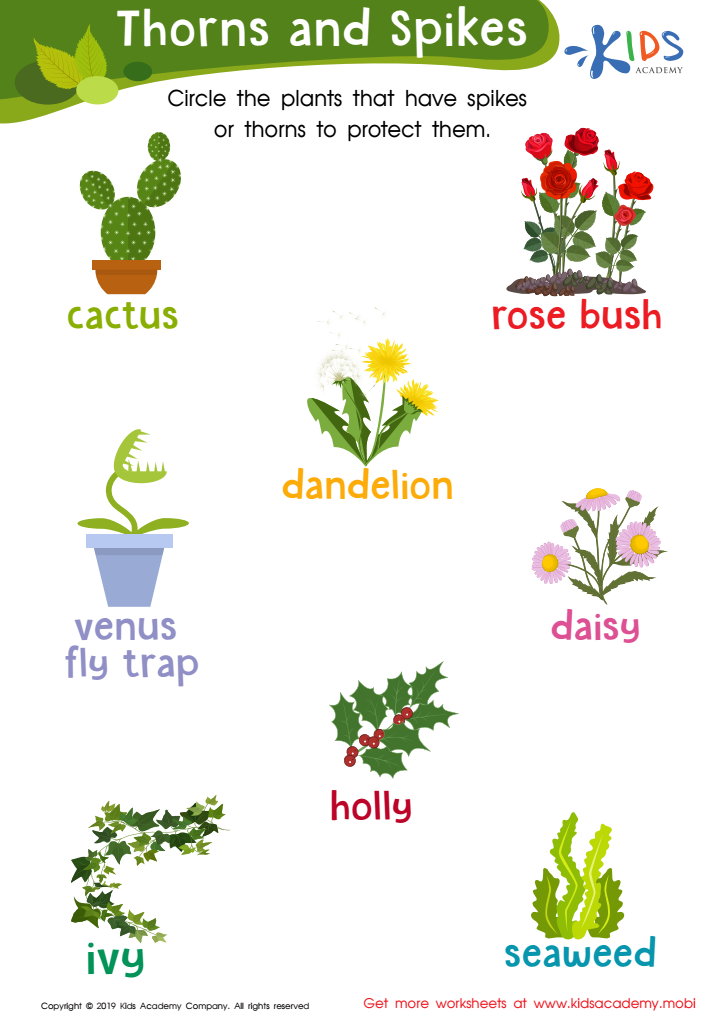

Thorns and Spikes Worksheet
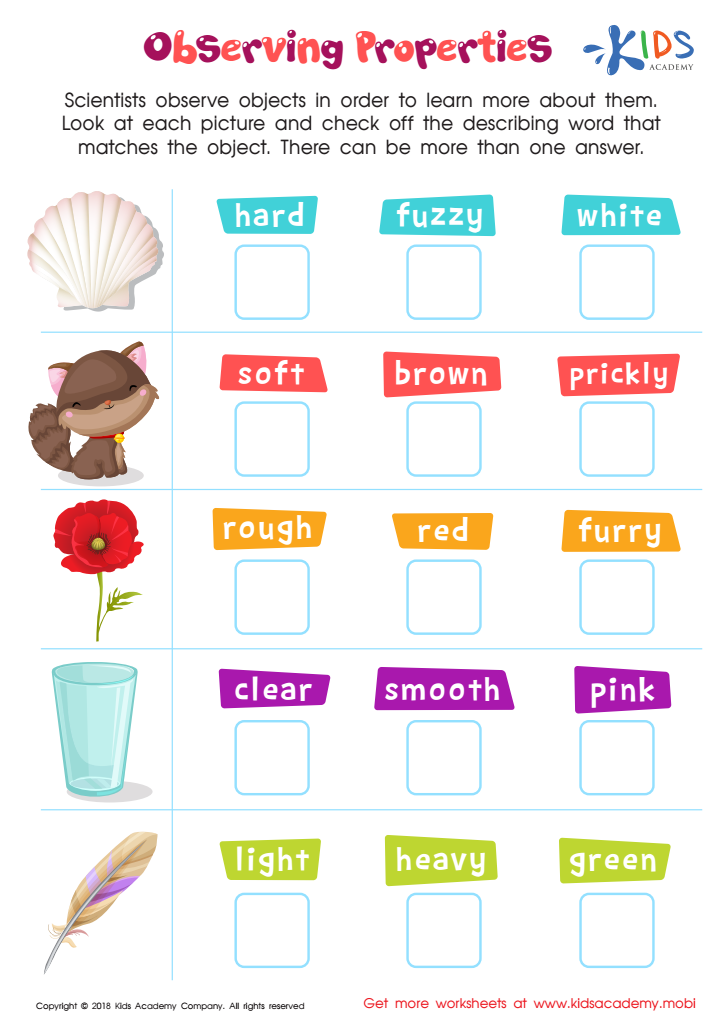

Observing Properties Worksheet
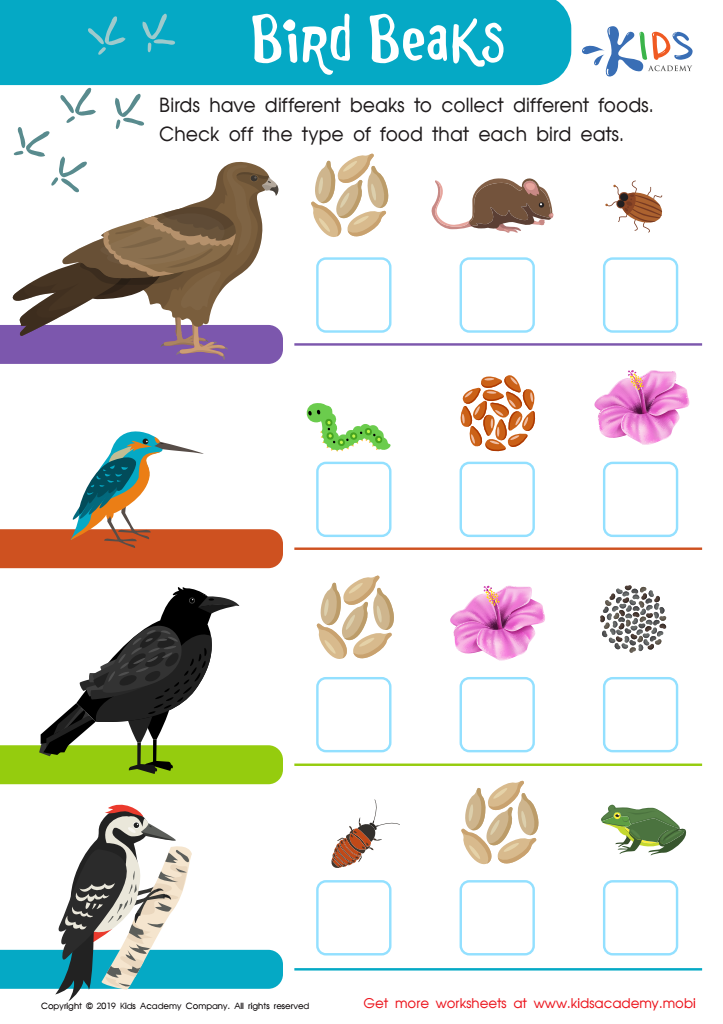

Bird Beaks Worksheet
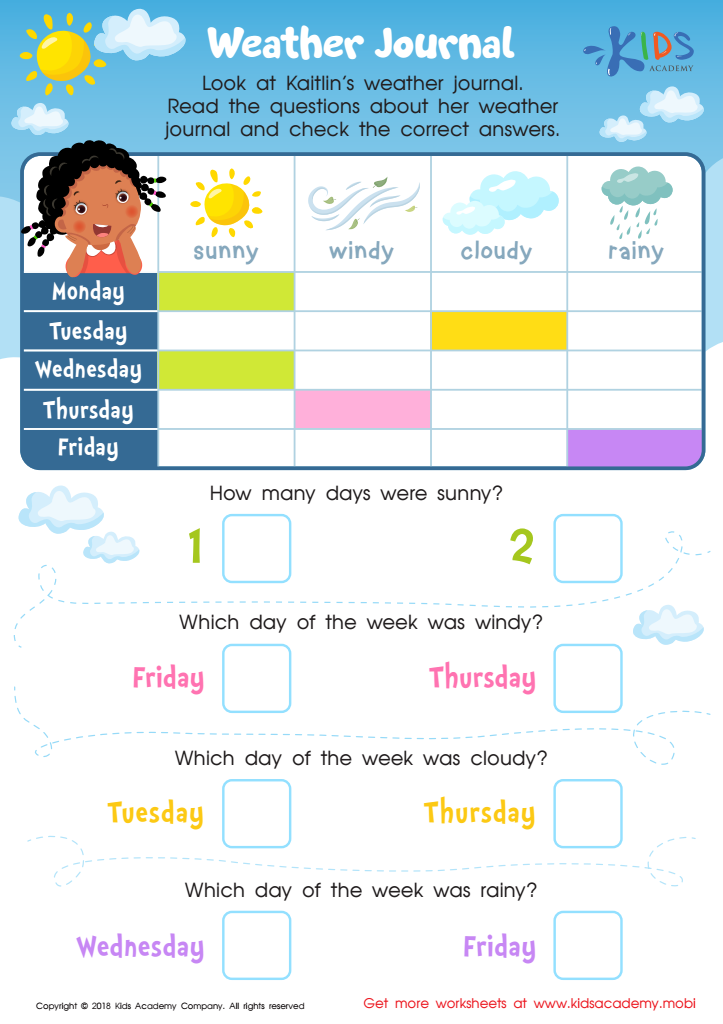

Weather Journal Worksheet
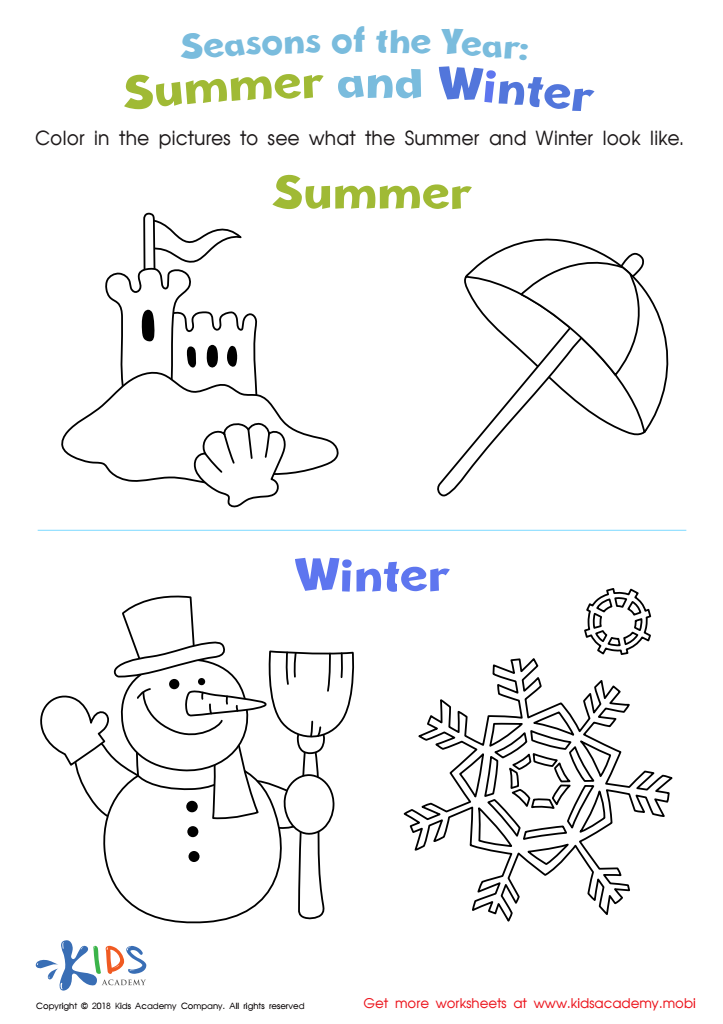

Summer and Winter Worksheet
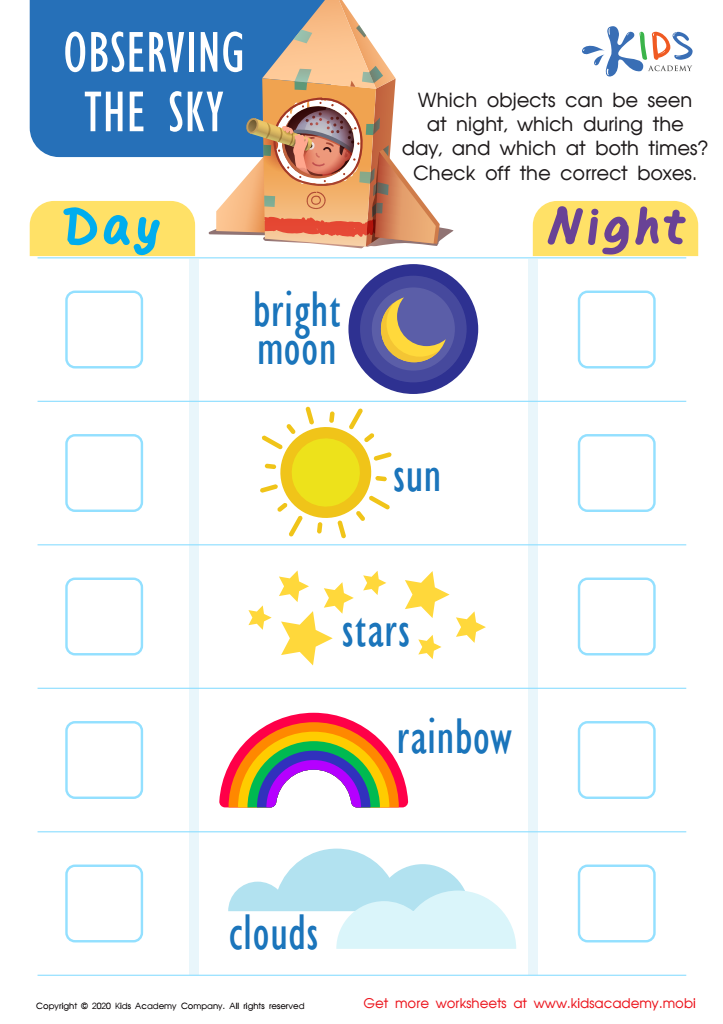

Observing the Sky Worksheet
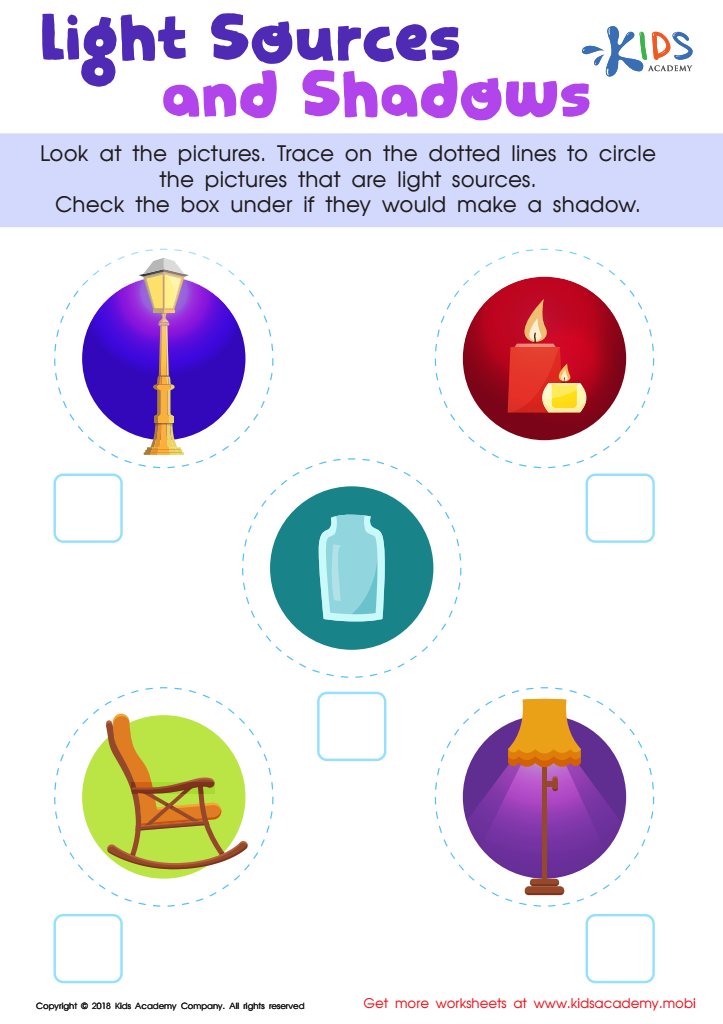

Light Sources and Shadows Worksheet
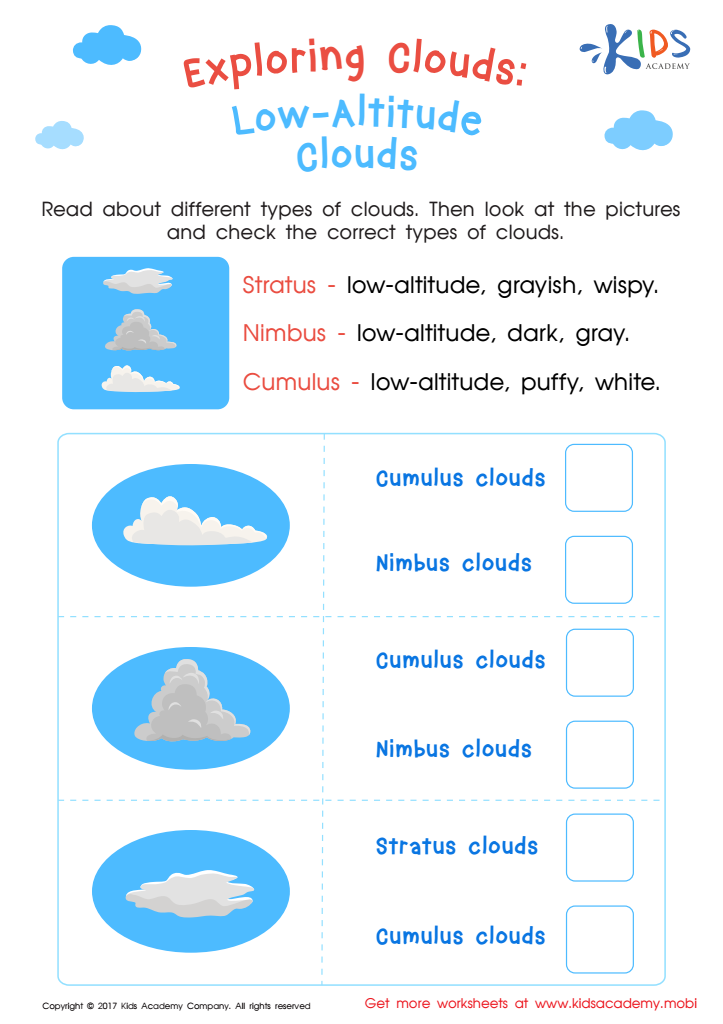

Exploring Clouds: Low Altitude Clouds Printable
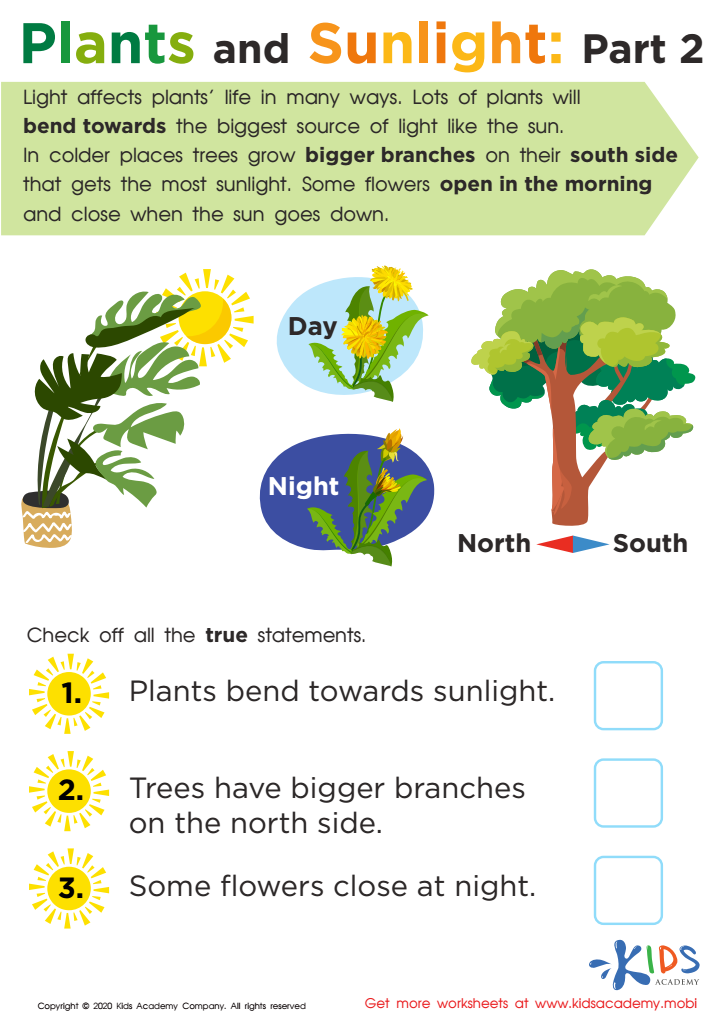

Plants and Sunlight: Part 2 Worksheet
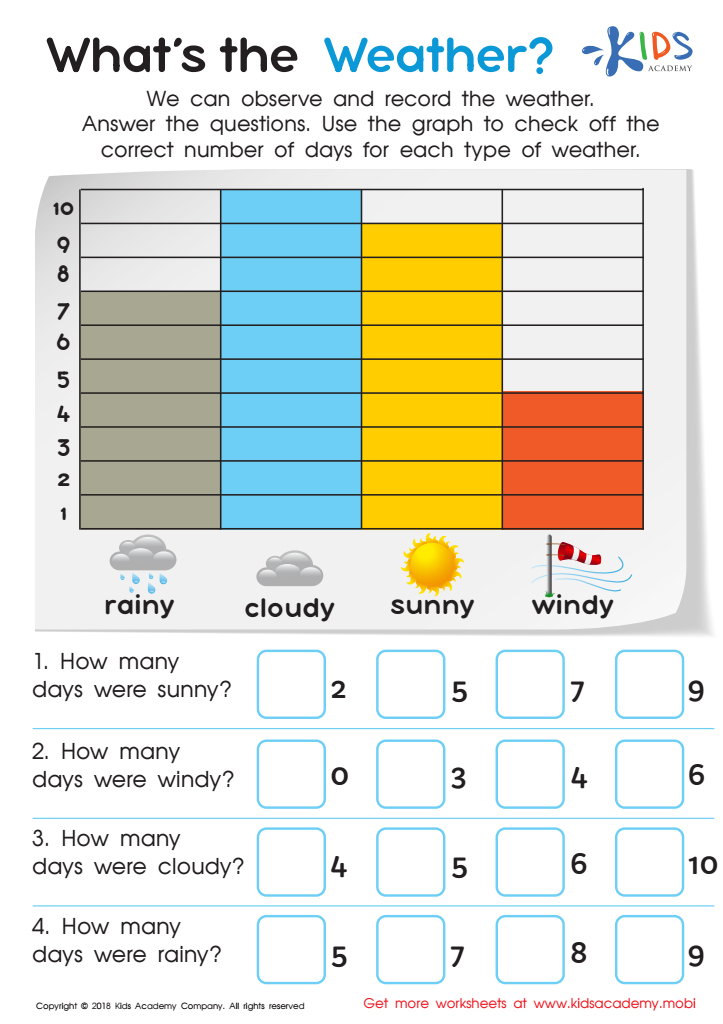

What's the Weather? Worksheet
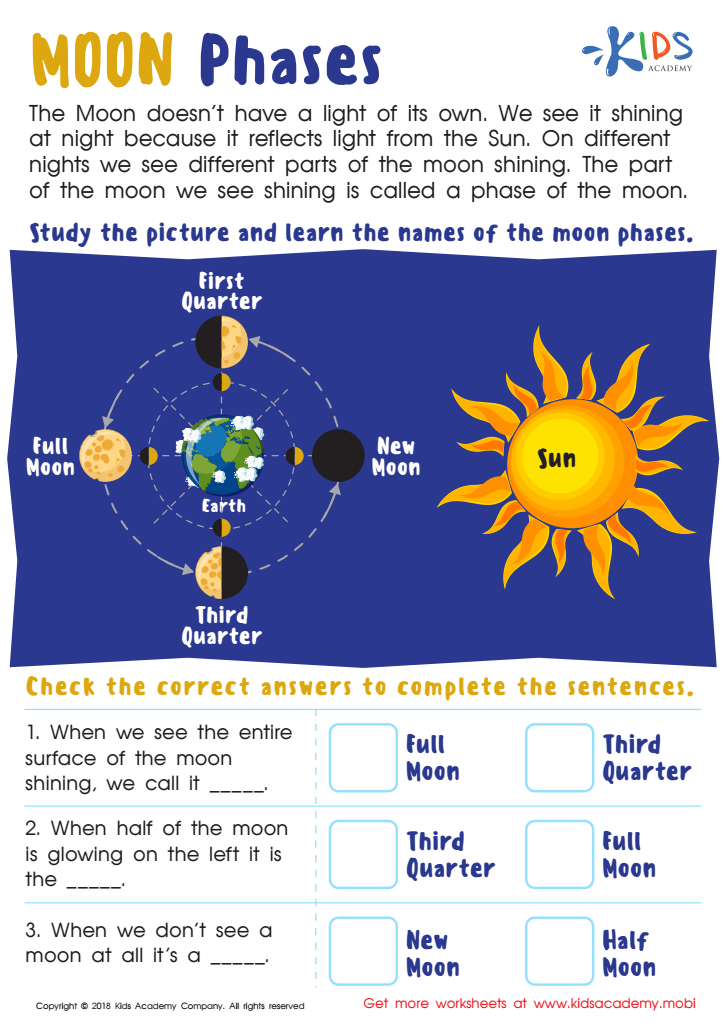

Moon Phases Worksheet
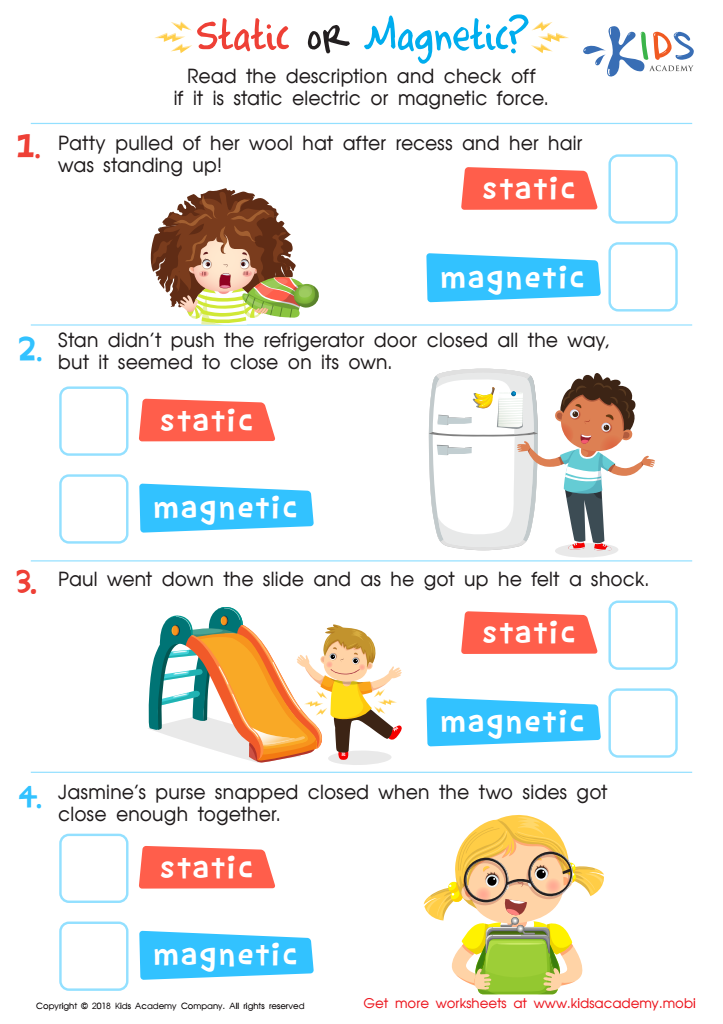

Static or Magnetic Printable Worksheet


Animals and Plants: Assessment 1 Worksheet
Observational skills are fundamental for young learners aged 4-8, as they serve as the building blocks for developing critical thinking, problem-solving, and scientific inquiry. Teaching children to observe their surroundings encourages curiosity and a deeper understanding of the world. This age group is naturally inquisitive, and fostering their observational skills nurtures their ability to ask questions, make predictions, and draw conclusions based on their experiences.
Parents and teachers who prioritize observational skills also cultivate attentiveness and focus in children. As these skills enhance children's ability to notice and interpret details in experiments and everyday situations, they prepare learners for formal scientific education later on. Moreover, observational skills can be integrated into everyday activities, such as nature walks or simple cooking tasks, promoting experiential learning that is both engaging and fun.
Beyond science, these skills have broader applications in literacy and mathematics, helping children to make connections and understand patterns. When children learn to carefully observe their environments, they not only grow academically but also improve their social and emotional intelligence by becoming more aware of others. Overall, nurturing observational skills is essential for developing well-rounded, competent young individuals who are ready to explore, learn, and thrive.

 Assign to My Students
Assign to My Students















